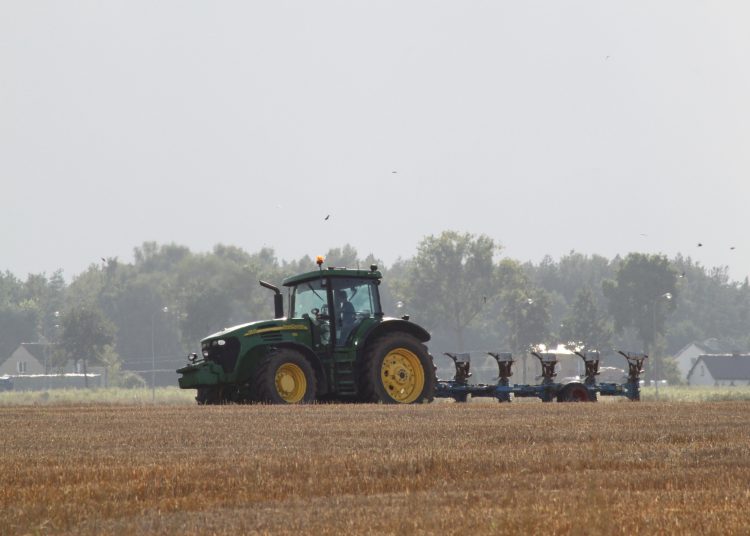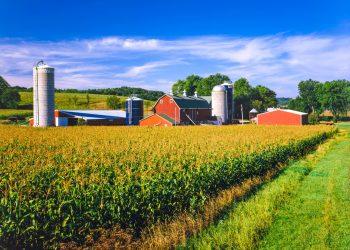The Farm Bill is an important investment in our hardworking farmers and producers, the competitiveness of American agriculture, and the strength of our economy. From trade, energy, and conservation to crop insurance, rural development, and access to affordable credit, every title of the Farm Bill touches a critical component for agriculture and our rural communities. Serving on both the House Agriculture Committee and the House Ways and Means Committee, I have introduced several pieces of legislation that benefit our producers and deserve to be included in the Farm Bill.
When severe weather strikes or the economy takes a turn for the worse, crop insurance is a vital tool that protects farmers from financial ruin and ensures that our producers can endure economic downturns and other unpredictable events. I’m advocating to strengthen crop insurance in the Farm Bill, especially for young and beginning farmers. My Crop Insurance for Future Farmers Act would deliver a 15% discount for young producers during their first two years of operation, 13% for their third year, 11% for their fourth year, and 10% from their fifth through their tenth years of farming. This legislation will help keep families rooted in our rural communities, continue Iowa’s proud tradition of family farming, and keep China away from our farmland as nearly 40% of American farmland is expected to change hands over the next two decades.
We also need to open new export markets for our farmers and their high-quality goods. However, to create new export opportunities for American farmers, we first need to build the necessary infrastructure in new and developing markets to deliver our goods, especially perishable items. That’s why I introduced the FRIDGE Act to support these infrastructure projects, diversify our trading partners, and help put more money in our farmers’ pockets. In addition to the FRIDGE Act, I introduced the Safe American Food Exports Act – also known as the SAFE Act – to ensure that an animal disease outbreak outside of Iowa or neighboring states does not impact our ability to export the agricultural products that the world depends on. It would also establish an alert system within the Import and Export Library to notify producers of changes in the import or export status of a given commodity. These two bills – which must be part of the Farm Bill – will help open new export markets for our farmers and strengthen Iowa’s status as the breadbasket to our country and the world.
Anyone who farms or knows a farmer knows that agriculture is a stressful, demanding, and time-consuming industry. We also know that farmers can face higher rates of burnout compared to other types of work, which is why I introduced the Farmers First Act. This legislation would expand and improve behavioral health services in rural communities and connect farmers in times of crisis with trained medical professionals to receive the personalized care that they need. More specifically, it would reauthorize the Farm and Ranch Stress Assistance Network (FRSAN) and allow FRSAN regional centers to establish referral connections with certified community behavioral health clinics, critical access hospitals, and rural health centers. By connecting our farmers and producers with the resources that they need, we can save lives.
Additionally, I’m working to strengthen the integrity of the Supplemental Nutrition Assistance Program – commonly referred to as SNAP – by cutting down on overpayments of SNAP benefits. As a strong, fiscal conservative, I believe that we must do everything possible to protect taxpayer dollars from being wasted or fraudulently disbursed. That’s why I introduced legislation to increase the accuracy of SNAP payment error rate (PER) calculations by amending the payment tolerance level from $54 to $0. Because of this costly exception, SNAP overpayments account for nearly $1 billion in federal spending every month. It’s wrong and must be resolved. Fortunately, my bill will take important steps to protect taxpayer dollars and ensure that we safeguard dollars for families in need.
Finally, a strong Farm Bill must support our institutions of higher education, which are trailblazers in groundbreaking research and cutting-edge science. My Genome to Phenome Initiative Reauthorization Act would do just that by investing in continued research at our colleges and universities to increase crop yields – particularly corn – while keeping costs low for farmers and producers. Over the last several years, we’ve seen China surpass our agricultural research funding by a two-to-one margin, and we cannot afford to fall behind. Scientific advancements – especially corn genetics – have helped our producers feed and fuel our country and the world at lower costs and with fewer inputs. By reauthorizing the Genome to Phenome Initiative, we can continue to make strides in corn genetics, lower costs for our producers, and increase corn yields.
Representing the second-largest agriculture-producing district in the U.S. House of Representatives, I will always be the strongest voice for agriculture in Congress. It is truly the economic engine of our rural communities and our state. While negotiations on the Farm Bill continue, I will ensure that the voice and priorities of Iowa farmers, producers, and our agricultural community are heard loud and clear.















